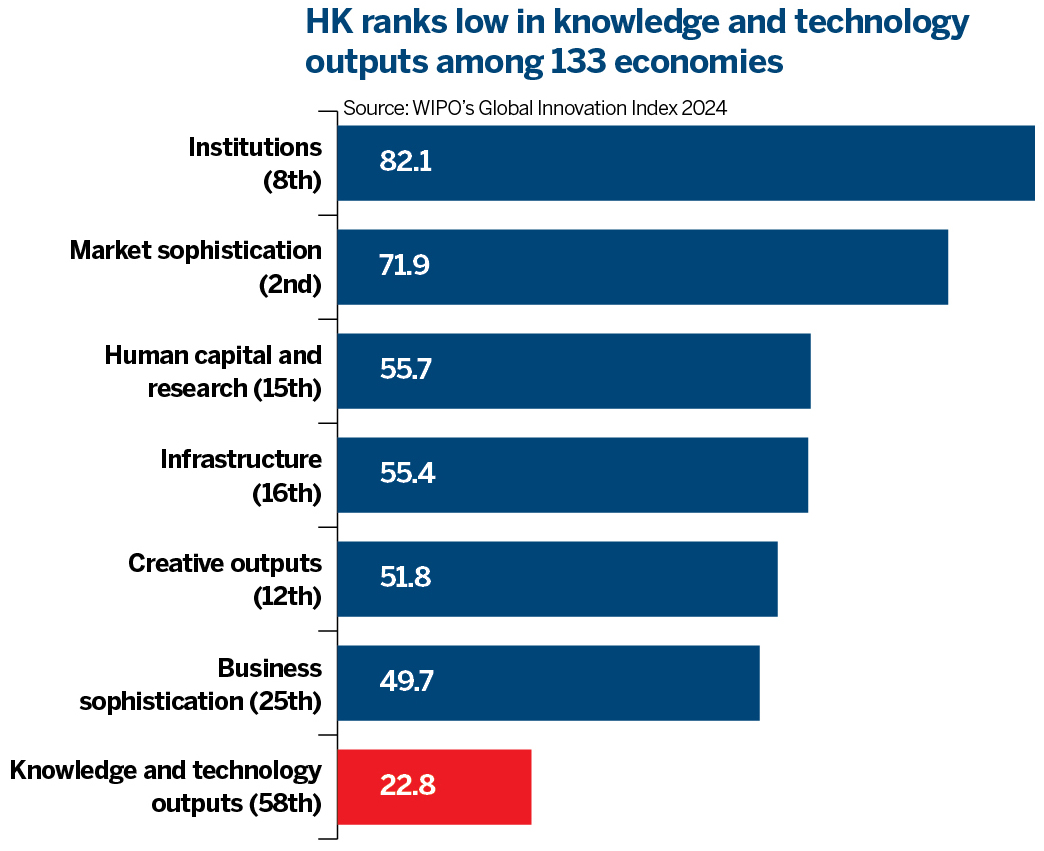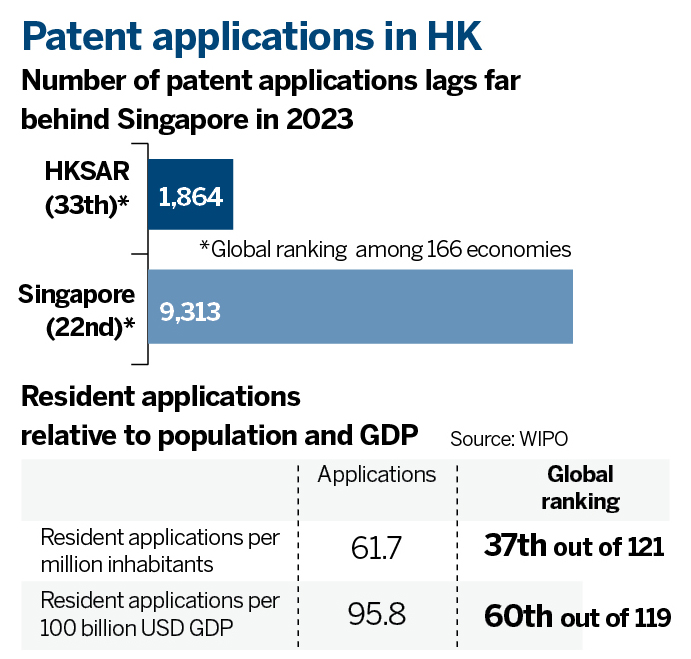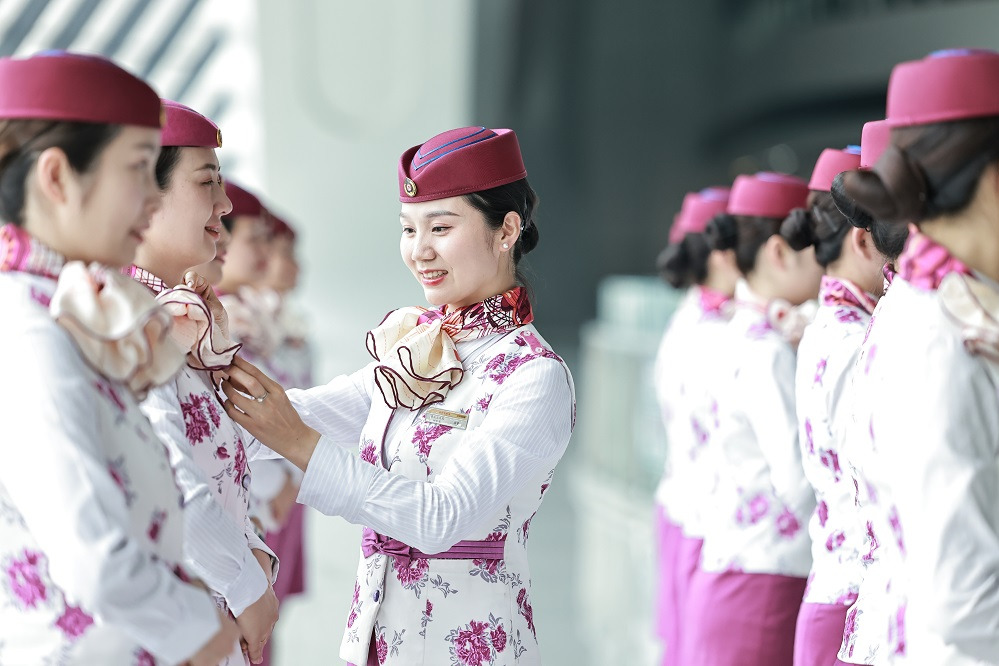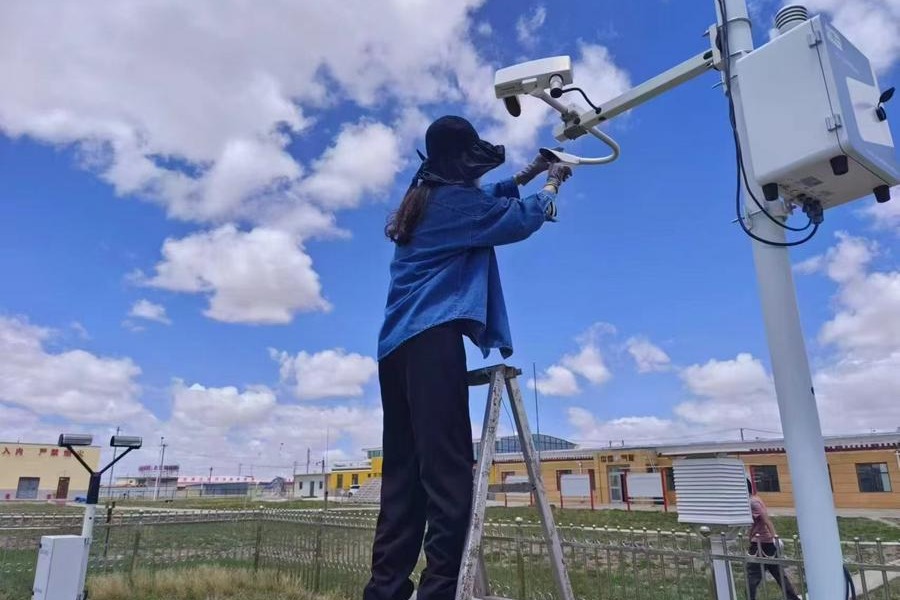Hong Kong's I&T ecosystem needs high-tech partners


Patent leverage
Hong Kong universities do not prioritize technology transfer activities. Patent ownership is hogged by the institutions with inadequate revenue-sharing to incentivize commercialization. Technology transfer receives limited academic recognition. The academic reluctance to fully embrace technology commercialization prevented Hong Kong from being a significant player in the Third and Fourth Industrial Revolutions.
After China joined the World Trade Organization in 2001, the mainland's reliance on Hong Kong diminished, while it accelerated rapidly into the technology leadership in artificial intelligence, big data, quantum computing, and biotechnology. The mainland sees these initiatives as vital to its sovereign options through the 21st century.
Tang Hei-wai, a Victor and William Fung economics professor at the HKU Business School, argues that creating market demand for technology commercialization is vital. "Hong Kong does not have a solid industrial base, which hinders technology commercialization. Even technology testing may not have the chance to get conducted here."

That situation can be corrected by attracting strategic enterprises, providing capital matching and long-term capital. The Office for Attracting Strategic Enterprises has enticed 50 strategic enterprises to establish here, expecting to bring over HK$42 billion in investments to create 17,000 jobs in the coming years.
"When there are more strategic enterprises established here, they create high-end technology positions for homegrown and overseas talent in basic science and applied science, thus fostering technology commercialization," says Tang.
The SAR government's HK$10 billion "Research, Academic and Industry Sectors One-plus Scheme" (RAISe+ Scheme) in October 2023 is another boost offering funding on a matching basis up to 2 (government) to 1 (industry and university).
The administration expects research and development (R&D) commercialization outcomes from at least 100 research teams of universities in Hong Kong in the next five years. The program's steering committee so far has recommended 24 research teams to join the first batch of projects, in which university teams or inventors would be entitled to 70 percent of the intellectual property (IP) benefits.
Duncan Chiu Tat-kun, a member of the Legislative Council for the Technology and Innovation functional constituency, lauds the RAISe+ Scheme as a generous financial support program: The government will not take equity in, nor require loan repayments, from the startups.
- China revises regulations on protection of new plant varieties
- China launches mandatory audits to bolster personal information protection
- Delivering social benefits
- Shenzhou XIX crew returns safely to 'beautiful, blue' Earth
- Ordinary work, extraordinary workers
- AI agent to improve international law services in Shanghai





































